Home>Articles>What Do You Finish Butcher Block Countertops With
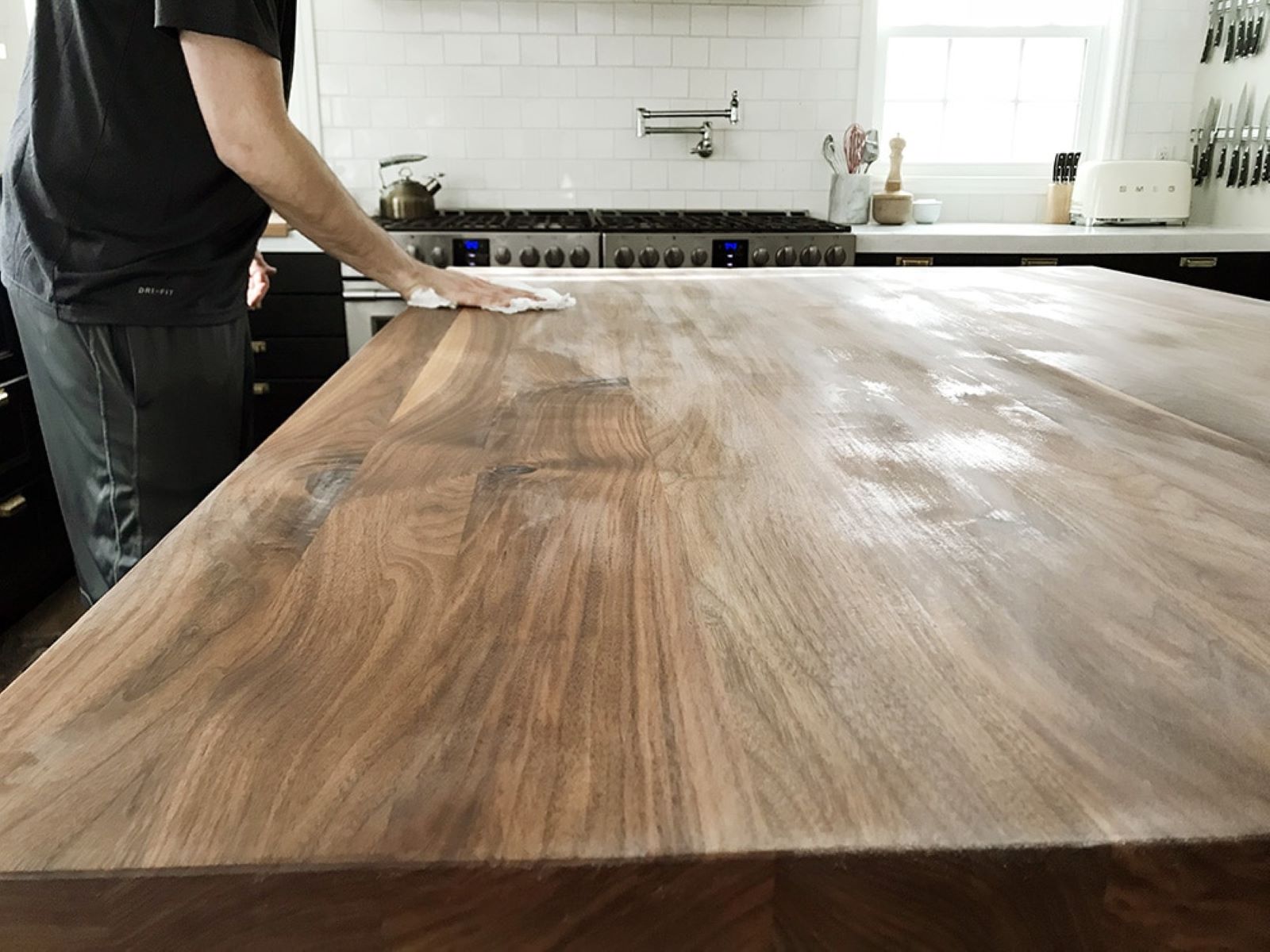

Articles
What Do You Finish Butcher Block Countertops With
Modified: January 5, 2024
Learn how to properly finish butcher block countertops with our informative articles. Find out the best techniques and products to protect and enhance your countertops.
(Many of the links in this article redirect to a specific reviewed product. Your purchase of these products through affiliate links helps to generate commission for Storables.com, at no extra cost. Learn more)
Introduction
When it comes to choosing the right finish for your butcher block countertops, there are several options to consider. Butcher block countertops are not only versatile and aesthetically pleasing, but they also require proper finishing to protect the wood and ensure their longevity.
A quality finish not only enhances the natural beauty of the wood but also acts as a protective barrier against moisture, stains, and bacteria. Finishing your butcher block countertops not only provides an appealing appearance but also increases their durability and lifespan.
In this article, we will explore the different types of finishes available for butcher block countertops and discuss their benefits and application techniques. Whether you prefer a natural oil-based finish or a food-safe sealant, we’ve got you covered with all the essential information you need to choose the best finish for your countertops.
Key Takeaways:
- Choose the right finish for your butcher block countertops to enhance their appearance and protect them from moisture, stains, and bacteria. Proper maintenance ensures longevity and functionality.
- Whether opting for natural oils or food-safe sealants, each finish offers unique benefits. Regular cleaning, preventing moisture exposure, and periodic reapplication are essential for maintaining the beauty and integrity of your finished countertops.
Read more: How Do You Install Butcher Block Countertops
Why Finish Butcher Block Countertops?
Finishing your butcher block countertops is crucial for several reasons. Firstly, it helps to protect the wood from moisture absorption, which can lead to warping, cracking, and overall damage. By applying a finish, you create a protective barrier that prevents liquids from penetrating the wood surface.
Secondly, finishing your countertops makes them more resistant to stains and spills. The finish acts as a shield that prevents liquids, oils, and food particles from seeping into the wood grain, making it easier to clean and maintain.
Additionally, a proper finish enhances the natural beauty of the wood and brings out its unique grain patterns and colors, making your countertops visually appealing. The finish can deepen the color of the wood, creating a warm and inviting atmosphere in your kitchen.
Moreover, finishing your countertops helps to maintain their hygiene. The right finish can inhibit the growth of bacteria and mold, ensuring that your countertops remain a safe and sanitary surface for food preparation.
Lastly, a well-finished butcher block countertop can significantly increase the lifespan of the wood. By protecting it from moisture, stains, and other forms of damage, you can enjoy the beauty and functionality of your countertops for years to come.
Types of Finishes for Butcher Block Countertops
There are various types of finishes available for butcher block countertops, each with its own unique characteristics and benefits. Let’s explore some of the most popular options:
Natural Oils:
Natural oils, such as walnut oil, mineral oil, and coconut oil, are popular choices for finishing butcher block countertops. These oils penetrate the wood fibers, enhancing the color and grain while providing a protective layer. Natural oils are food-safe and easy to apply, making them a great option for homeowners who prefer a more natural look and feel.
Mineral Oil:
Mineral oil is a popular choice for finishing butcher block countertops. It is odorless, tasteless, and food-safe, making it ideal for surfaces that come into contact with food. Mineral oil is easy to apply and provides excellent moisture resistance. However, it may require more frequent maintenance and reapplication compared to other finishes.
Read more: How To Do Butcher Block Countertops
Beeswax:
Beeswax is another natural option for finishing butcher block countertops. It creates a lustrous and smooth surface while offering moisture resistance. Beeswax is food-safe and provides a natural, low sheen finish. However, it may require regular reapplication to maintain its protective properties.
Tung Oil:
Tung oil is a popular choice for finishing wood surfaces. It creates a durable and water-resistant finish that enhances the natural beauty of the wood. Tung oil provides a warm, amber-toned finish and is easy to maintain. However, it may take longer to dry compared to other finishes.
Food-Safe Sealants:
Food-safe sealants, such as polyurethane, Waterlox, and carnauba wax, are commonly used to finish butcher block countertops. These sealants create a durable and protective layer that is resistant to stains, moisture, and bacteria. Food-safe sealants often come in different sheen options, allowing you to choose the level of shine you prefer.
It’s important to note that when using any finish, it’s essential to follow the manufacturer’s instructions for application and maintenance. Different finishes may require different application techniques and drying times, so be sure to read the labels carefully.
Natural Oils
Natural oils are a popular choice for finishing butcher block countertops due to their ability to enhance the natural beauty of the wood while providing a protective layer. Here are some common natural oils used for finishing:
Read more: How Do You Clean Butcher Block Countertops
Walnut Oil:
Walnut oil is a food-safe oil that helps to bring out the rich, warm tones of the wood. It penetrates the wood fibers, nourishing and protecting the surface. Walnut oil dries to a matte finish and is relatively easy to apply. It is important to note that walnut oil can cause allergic reactions in some individuals, so it is recommended to use with caution.
Mineral Oil:
Mineral oil is a popular choice for finishing butcher block countertops due to its excellent moisture resistance and food-safe properties. It is odorless, tasteless, and does not go rancid, making it an ideal option for surfaces that come into contact with food. Mineral oil is easy to apply, either by hand or with a cloth, and it helps to maintain the natural color and grain of the wood. However, it may require more frequent reapplication compared to other finishes.
Coconut Oil:
Coconut oil is a natural oil that is often used as a food-safe finish for butcher block countertops. It has antimicrobial properties that help inhibit the growth of bacteria on the surface. Coconut oil penetrates the wood, providing hydration and protection. It leaves the wood with a subtle sheen and a tropical scent. However, coconut oil can solidify at lower temperatures, so it may require warming before application.
When applying natural oils, it is important to ensure that the wood surface is clean and free of any dust or debris. Apply the oil in thin, even coats, allowing each coat to fully absorb before applying the next one. Depending on the oil and the manufacturer’s recommendations, you may need to repeat the application process multiple times to achieve the desired level of protection and sheen.
It is worth mentioning that natural oils provide a more natural, low sheen finish compared to other types of finishes. They may require more frequent maintenance and reapplication over time to ensure the continued protection of the wood surface.
Mineral Oil
Mineral oil is a popular choice for finishing butcher block countertops due to its excellent moisture resistance and food-safe properties. It is an odorless, tasteless, and non-toxic oil that is safe to use on surfaces that come into contact with food. Mineral oil helps to protect the wood from moisture, preventing it from swelling, warping, or cracking over time.
One of the key advantages of mineral oil is its ability to penetrate deep into the wood fibers. This penetration creates a protective barrier that helps to repel water, stains, and other liquids that may come into contact with the countertop. The oil fills in any gaps or pores in the wood, creating a smoother and more uniform surface.
Applying mineral oil to butcher block countertops is a relatively simple process. Start by ensuring that the surface is clean and free of any debris. Then, using a clean cloth or sponge, apply a generous amount of mineral oil to the entire surface of the countertop. Make sure to spread the oil evenly and work it into the wood, focusing on any areas that appear dry or absorbent.
After applying the oil, allow it to soak into the wood for a few hours or even overnight. This allows the oil to fully penetrate and nourish the wood fibers. Once the oil has had time to absorb, wipe off any excess oil that remains on the surface. This step helps to prevent the countertop from feeling greasy or sticky after the application.
It’s important to note that mineral oil is not a permanent finish and may require regular reapplication. The frequency of reapplication will depend on factors such as the level of use and exposure to moisture. As a general guideline, it is recommended to reapply mineral oil every few weeks or whenever the wood starts to appear dry.
In addition to regular reapplication, proper maintenance is key to prolonging the life and beauty of the butcher block countertop. Avoid exposing the countertop to excessive heat, harsh chemicals, and abrasive cleaners. Instead, use mild soap and water to clean the surface and dry it thoroughly after each use.
Overall, mineral oil is a reliable and affordable option for finishing butcher block countertops. It provides a natural and nourishing finish that protects the wood and enhances its appearance. Regular maintenance and reapplication will ensure that your countertop remains in optimal condition for years to come.
Beeswax
Beeswax is a natural and environmentally friendly option for finishing butcher block countertops. It has been used for centuries as a versatile and effective wood finish. Beeswax offers several benefits, including its ability to create a smooth and lustrous surface while providing moisture resistance.
One of the advantages of using beeswax is its ability to enhance the natural beauty of the wood. When applied to the surface, beeswax deepens the color and grain of the wood, giving it a warm and inviting appearance. It creates a low sheen finish that brings out the natural texture and character of the wood.
In addition to its aesthetic benefits, beeswax offers a protective layer that helps to repel moisture and prevent staining. It fills in the pores and small cracks in the wood, creating a smoother surface that is resistant to spills and splatters. Beeswax also provides a natural barrier against bacteria and mold, making it a hygienic option for kitchen countertops.
Applying beeswax to butcher block countertops is a relatively straightforward process. Start by ensuring that the surface is clean and free of any debris. You can use a mild soap and water solution to remove any dirt or grime. Once the surface is dry, take a clean cloth or sponge and apply a thin, even layer of beeswax. Work the wax into the wood surface, making sure to cover the entire countertop.
After applying the beeswax, allow it to sit on the surface for a few minutes to soften. Then, using a clean cloth or a wax brush, buff the surface in circular motions. This buffing action helps to distribute the wax evenly and create a smooth and glossy finish. Continue buffing until the desired level of shine is achieved.
It’s important to note that beeswax may require regular reapplication to maintain its protective properties and sheen. The frequency of reapplication will depend on factors such as the level of use and exposure to moisture. As a general guideline, it is recommended to reapply beeswax every few months or whenever the wood starts to appear dry.
In terms of maintenance, it’s best to clean the countertop with a mild soap and water solution. Avoid using harsh chemicals or abrasive cleaners, as they can strip away the protective layer of beeswax. Regular cleaning and drying the surface after use will help to maintain the beauty and integrity of the finish.
Overall, beeswax is a natural and effective option for finishing butcher block countertops. It provides a beautiful and protective finish that enhances the wood’s natural characteristics. With proper care and maintenance, your countertop will remain a stunning centerpiece in your kitchen for years to come.
Tung Oil
Tung oil is a popular choice for finishing butcher block countertops due to its durability, water-resistance, and natural beauty enhancement properties. Made from the nuts of the tung tree, tung oil is known for providing a stunning finish that deepens the color and grain of the wood, creating a warm and rich appearance.
One of the key advantages of tung oil is its ability to penetrate deep into the wood, creating a protective layer that enhances the natural beauty of the grain. It offers excellent water resistance, preventing the wood from absorbing moisture and reducing the risk of warping or cracking. Tung oil also offers good resistance to stains, making it ideal for kitchen countertops.
Applying tung oil to butcher block countertops requires some preparation. Start by ensuring that the surface is clean and free of debris. Sanding the wood with fine-grit sandpaper will help to create a smooth and even surface. Remove any dust or residue before applying the oil.
Apply a thin layer of tung oil to the countertop using a clean cloth or brush. Work the oil into the surface, following the direction of the grain. Allow the oil to penetrate the wood for about 15-20 minutes, then wipe off any excess oil with a clean cloth. Repeat this process for additional coats, allowing sufficient drying time between each application.
It’s important to note that tung oil may require multiple coats to achieve the desired level of protection and sheen. The number of coats will depend on factors such as the type of wood and desired level of finish. Generally, 3-4 coats are recommended for an optimal result.
After the final coat of tung oil has dried, the surface may appear slightly matte. To achieve a higher sheen, you can buff the countertop gently with a clean cloth. This will help to bring out the natural luster of the wood and create a smooth and glossy finish.
Maintenance of tung oil-finished countertops is relatively simple. Clean the surface with a mild soap and water solution as needed, and ensure that any spills or stains are promptly wiped up to prevent them from penetrating the wood. With proper care, tung oil finish can last for several years before requiring a touch-up or reapplication.
Overall, tung oil is a popular choice for finishing butcher block countertops due to its durability, water-resistance, and ability to enhance the natural beauty of the wood. With proper application and maintenance, a tung oil-finished countertop can be a stunning and long-lasting centerpiece in any kitchen.
Food-Safe Sealants
When it comes to finishing butcher block countertops, food-safe sealants are a popular choice. These sealants provide a durable and protective layer that helps to extend the lifespan of your countertops while ensuring they remain safe for food preparation. Here are some commonly used food-safe sealants:
Polyurethane:
Polyurethane is a synthetic sealant that offers excellent durability and water resistance. It forms a hard, protective layer on the surface of the wood, making it highly resistant to stains, scratches, and moisture. Polyurethane is available in different sheen levels, ranging from matte to glossy, allowing you to choose the desired finish for your countertops. It is important to select a polyurethane sealant specifically labeled as food-safe.
Waterlox:
Waterlox is a tung oil-based finish that provides a combination of beauty and durability. It penetrates the wood, enhancing its natural grain and color, while also offering excellent water resistance. Waterlox is a versatile sealant that is available in different formulas, allowing you to choose the appropriate one for your specific needs. It creates a satin or glossy finish that can be maintained by reapplication over time.
Carnauba Wax:
Carnauba wax is a natural and food-safe option for finishing butcher block countertops. It is a hard wax that provides protection against moisture, stains, and daily wear. Carnauba wax creates a smooth and glossy finish that enhances the wood’s natural beauty. However, it may require more regular reapplication compared to other sealants to maintain its protective properties.
Applying food-safe sealants to your butcher block countertops typically involves multiple coats. Prior to application, prepare the surface by ensuring it is clean, dry, and free from any dust or debris. Follow the manufacturer’s instructions regarding application techniques and drying times.
While food-safe sealants provide a durable and protective layer, it is important to keep in mind that they may alter the natural appearance of the wood to some extent. They may add a slight sheen or gloss to the surface, which can enhance the overall beauty of the countertops.
To maintain your countertops with food-safe sealants, it is recommended to clean the surface with a mild soap and water solution or a specially formulated wood cleaner. Avoid using harsh chemicals or abrasive cleaners that can damage the sealant. Regularly inspect the countertops for any signs of wear or damage, and reapply the sealant as necessary to ensure continued protection.
Food-safe sealants offer both functional and aesthetic benefits, providing a long-lasting and attractive finish for your butcher block countertops. With proper care and maintenance, sealed countertops will remain a beautiful and safe surface for all your culinary adventures.
Polyurethane
Polyurethane is a popular choice for finishing butcher block countertops due to its exceptional durability, water resistance, and ease of application. It is a synthetic sealant that forms a protective layer on the surface of the wood, providing excellent protection against stains, scratches, and moisture.
One of the key advantages of polyurethane is its durability. Once cured, polyurethane creates a hard finish that can withstand daily use and abuse in the kitchen. This makes it an ideal choice for high-traffic areas such as countertops, where durability is essential.
Polyurethane is available in different sheen levels, ranging from matte to glossy. This allows you to choose the desired level of shine for your countertops. A glossy finish can create a lustrous and visually appealing surface, while a matte finish provides a more subtle and natural look.
Applying polyurethane to butcher block countertops is a straightforward process. Start by ensuring that the surface is clean, dry, and free of any dust or debris. Sanding the wood with fine-grit sandpaper can help create a smoother and more even surface for optimal results.
When it comes to application, follow the manufacturer’s instructions on the product label. Polyurethane is typically applied in thin, even coats using a brush, foam pad, or sprayer. Allow each coat to dry fully before applying the next one. It is important to note that sanding between coats may be necessary to achieve a smooth and flawless finish.
After the final coat of polyurethane is applied and dried, the surface will be hard and protective. Polyurethane provides an effective barrier against moisture, making it easy to clean and maintain. However, it is important to use mild soap and water or a specially formulated wood cleaner to avoid damaging the finish.
With proper care, a polyurethane-finished countertop can last for many years. It is important to avoid exposing the surface to extreme temperatures, harsh chemicals, or abrasive cleaners, as these can damage the finish. Regular cleaning and prompt wiping of spills will help maintain the beauty and integrity of the polyurethane finish.
Overall, polyurethane is a reliable and popular choice for finishing butcher block countertops. Its durability, water resistance, and range of sheen options make it a versatile and practical option for homeowners. With proper application and maintenance, polyurethane-finished countertops will provide a beautiful and long-lasting surface for your kitchen.
Waterlox
Waterlox is a tung oil-based finish that is well-known for its exceptional durability and water-resistant properties. It is a popular choice for finishing butcher block countertops due to its ability to enhance the natural beauty of the wood while providing long-lasting protection.
One of the key advantages of Waterlox is its ability to penetrate deep into the wood, enriching the natural grain and color. It creates a warm and lustrous finish that brings out the character of the wood, adding depth and richness to your countertops.
Waterlox offers excellent water resistance, making it ideal for use in moisture-prone areas such as kitchens and bathrooms. It helps to repel spills and stains, protecting the wood surface from potential damage. Waterlox also provides a protective barrier against UV rays, helping to prevent fading and discoloration over time.
Applying Waterlox to butcher block countertops is a multi-step process. Before starting, ensure that the surface is clean, dry, and free from any dust or debris. Sanding the wood with fine-grit sandpaper will help to create a smooth and even surface for optimal adhesion.
Waterlox comes in different formulations, including original, high-gloss, and satin finishes, depending on your desired level of shine. It is typically applied in thin, even coats using a brush or applicator pad. Allow each coat to dry completely before applying the next one. Sand lightly between coats to achieve a smooth and flawless finish.
Once the final coat of Waterlox is applied and dried, the surface will have a beautiful and protective finish. Waterlox creates a satin or glossy appearance, depending on the chosen formulation. It is important to note that the more coats of Waterlox applied, the higher the sheen.
Maintenance of Waterlox-finished countertops is relatively simple. Clean the surface with a mild soap and water solution or a specially formulated wood cleaner. Avoid using harsh chemicals or abrasive cleaners that can strip away the finish. Regular cleaning and wiping up spills promptly will help to maintain the beauty and integrity of the Waterlox finish.
Over time, you may find that your Waterlox-finished countertops require touch-ups or reapplication. The frequency of reapplication will depend on factors such as use and exposure to moisture. As a general guideline, it is recommended to refresh the finish every few years to ensure continued protection and appearance.
Overall, Waterlox is a versatile and effective choice for finishing butcher block countertops. Its ability to enhance the natural beauty of the wood, provide durability, and offer water resistance makes it a popular option among homeowners. With proper application and maintenance, Waterlox-finished countertops can be enjoyed for many years to come.
Carnauba Wax
Carnauba wax is a natural and food-safe option for finishing butcher block countertops. It is derived from the leaves of the Brazilian carnauba palm tree and is known for its excellent shine and protection. Carnauba wax offers a beautiful and lustrous finish that enhances the natural beauty of the wood.
One of the key advantages of carnauba wax is its ability to create a smooth and glossy surface. When applied to butcher block countertops, it forms a protective layer that helps to repel moisture, stains, and daily wear. Carnauba wax enhances the color and grain of the wood, giving it a warm and inviting appearance.
Applying carnauba wax to butcher block countertops is a relatively simple process. Start by ensuring that the surface is clean and free of any dust or debris. You can use a mild soap and water solution to remove any dirt or grime. Once the surface is dry, apply a thin layer of carnauba wax to the countertop using a clean cloth or a soft applicator pad.
Work the wax into the wood using gentle circular motions, ensuring that the wax is evenly distributed. Allow the wax to sit on the surface for a few minutes to soften. Then, using a clean cloth or a wax brush, buff the surface in circular motions to remove any excess wax and create a smooth and glossy finish.
It’s important to note that carnauba wax may require regular reapplication to maintain its protective properties. The frequency of reapplication will depend on factors such as the level of use and exposure to moisture. As a general guideline, it is recommended to reapply carnauba wax every few months or whenever the wood starts to appear dull or dry.
Maintenance of carnauba wax-finished countertops is relatively straightforward. Clean the surface with a mild soap and water solution or a specially formulated wood cleaner. Avoid using harsh chemicals or abrasive cleaners that can damage the wax. Regular cleaning and wiping up spills promptly will help to maintain the beauty and integrity of the carnauba wax finish.
One important consideration with carnauba wax is that it may not provide the same level of durability and protection as other sealants. It is generally more suitable for low-traffic areas or surfaces that do not come into direct contact with moisture or heat. For butcher block countertops that experience heavy use or exposure to water, a more durable sealant may be preferable.
Overall, carnauba wax is a natural and attractive option for finishing butcher block countertops. Its ability to create a smooth and glossy finish, along with its food-safe properties, makes it a popular choice among homeowners. With proper application and regular maintenance, carnauba wax-finished countertops will continue to shine and protect the wood for years to come.
How to Apply the Finish
Applying the finish to your butcher block countertops is an essential step to protect and enhance the wood. The application process will vary depending on the type of finish you choose, but here are some general guidelines to help you get started:
Preparation:
Start by ensuring that the surface of your countertops is clean, dry, and free of any dust or debris. If necessary, sand the wood with fine-grit sandpaper to create a smooth and even surface. Follow any specific instructions provided by the manufacturer of your chosen finish.
Application:
Follow the instructions on the product label for the specific finish you are using. Generally, you will apply the finish in thin, even coats using a brush, cloth, or applicator pad. Work the finish into the wood, following the direction of the grain. Take care to apply an even coat, covering the entire surface of the countertop.
Read more: What Oil To Use On Butcher Block Countertops
Drying Time:
Allow the finish to dry fully between coats. The drying time will vary depending on the type of finish you are using, as well as the temperature and humidity in your environment. Refer to the manufacturer’s instructions for recommended drying times. Avoid placing any objects or using the countertops until the finish is completely dry.
Multiple Coats:
Depending on the finish you choose, you may need to apply multiple coats for optimal protection and appearance. Follow the manufacturer’s recommendations for the number of coats and any sanding or buffing between coats. Take care to allow each coat to dry fully before applying the next one.
Buffing and Polishing:
After applying the final coat of finish and allowing it to dry, you may choose to buff and polish the surface for added luster and smoothness. This step is optional and will depend on your preference and the type of finish you used. Use a clean cloth or a buffing pad to gently buff the surface in circular motions.
Curing Time:
Keep in mind that many finishes require a curing or drying period before they reach their full strength and durability. Check the manufacturer’s recommendations for the specific finish you used. During the curing period, exercise caution and avoid placing any heavy objects or exposing the countertops to excessive heat or moisture.
Remember to read and follow the manufacturer’s instructions for your chosen finish carefully. This will ensure that you apply it correctly and achieve the best possible results for your butcher block countertops.
Read more: How Durable Is Butcher Block Countertops
Maintenance and Care Tips
Maintaining and caring for your finished butcher block countertops is essential to preserve their beauty and longevity. With proper maintenance, you can ensure that your countertops remain in optimal condition for years to come. Here are some important tips to consider:
Cleaning:
Regularly clean your countertops using a mild soap and water solution or a specially formulated wood cleaner. Avoid using harsh chemicals or abrasive cleaners, as these can damage the finish. Gently scrub the surface with a soft cloth or sponge, and make sure to dry it thoroughly after cleaning to prevent moisture penetration.
Preventing Moisture Exposure:
Wipe up spills promptly to prevent moisture from seeping into the wood. Prolonged exposure to water can cause swelling and damage. Use coasters or placemats under glasses and hot pads or trivets under hot pots and pans to protect the surface from heat and moisture.
Avoiding Cutting Directly on the Surface:
Avoid cutting or chopping directly on the surface of your butcher block countertops. Use cutting boards or butcher block chopping blocks to protect the wood and prevent scratches or gouges.
Read more: How To Sand Butcher Block Countertops
Reapplication of Finish:
Depending on the type of finish you chose, periodic reapplication may be necessary to maintain the protective properties and appearance of your countertops. Follow the manufacturer’s instructions for reapplication frequency and techniques.
Regular Inspection:
Regularly inspect your countertops for any signs of wear, scratches, or damage. Address any issues promptly to prevent further damage and maintain the integrity of the finish.
Avoiding Harsh Chemicals and Abrasives:
Avoid using harsh chemicals, bleach, or abrasive cleaners on your countertops. These can strip away the finish and damage the wood. Instead, opt for mild and non-abrasive cleaning solutions that are safe for use on wood surfaces.
Periodic Sanding:
Over time, your countertops may develop minor scratches or imperfections. Use fine-grit sandpaper to sand away the surface imperfections and restore a smooth finish. Follow up with reapplication of the appropriate finish to protect the exposed wood.
By following these maintenance and care tips, you can ensure that your finished butcher block countertops remain beautiful and functional for years to come. Regular cleaning, proper protection against heat and moisture, as well as periodic reapplication of finishes, will help maintain their natural beauty and durability.
Conclusion
Choosing the right finish for your butcher block countertops is crucial for both aesthetics and functionality. With the wide range of options available, from natural oils to food-safe sealants, you can find the perfect finish to suit your style and needs.
Applying a quality finish to your countertops not only enhances their appearance but also protects the wood from moisture, stains, and bacteria. It helps prolong the life of your countertops, ensuring they remain a beautiful and functional part of your kitchen for years to come.
Whether you opt for natural oils like walnut oil or mineral oil, or choose the durability and water resistance of polyurethane or Waterlox, each finish offers its own unique benefits. Consider the specific requirements of your countertops, such as level of use, exposure to moisture, and desired appearance, when selecting the finish that best meets your needs.
Remember, proper maintenance and care are key to maintaining the beauty and integrity of your finished countertops. Regular cleaning, preventing moisture exposure, and periodic reapplication or touch-ups of the finish will help ensure their longevity.
With the right finish and proper maintenance, your butcher block countertops will continue to be a statement piece in your kitchen. They will provide a durable and beautiful surface for food preparation, gatherings, and everyday activities.
So take the time to choose the right finish, follow the application instructions carefully, and implement a regular maintenance routine. By doing so, you’ll be able to enjoy the natural beauty and functionality of your finished butcher block countertops for years to come.
Frequently Asked Questions about What Do You Finish Butcher Block Countertops With
Was this page helpful?
At Storables.com, we guarantee accurate and reliable information. Our content, validated by Expert Board Contributors, is crafted following stringent Editorial Policies. We're committed to providing you with well-researched, expert-backed insights for all your informational needs.
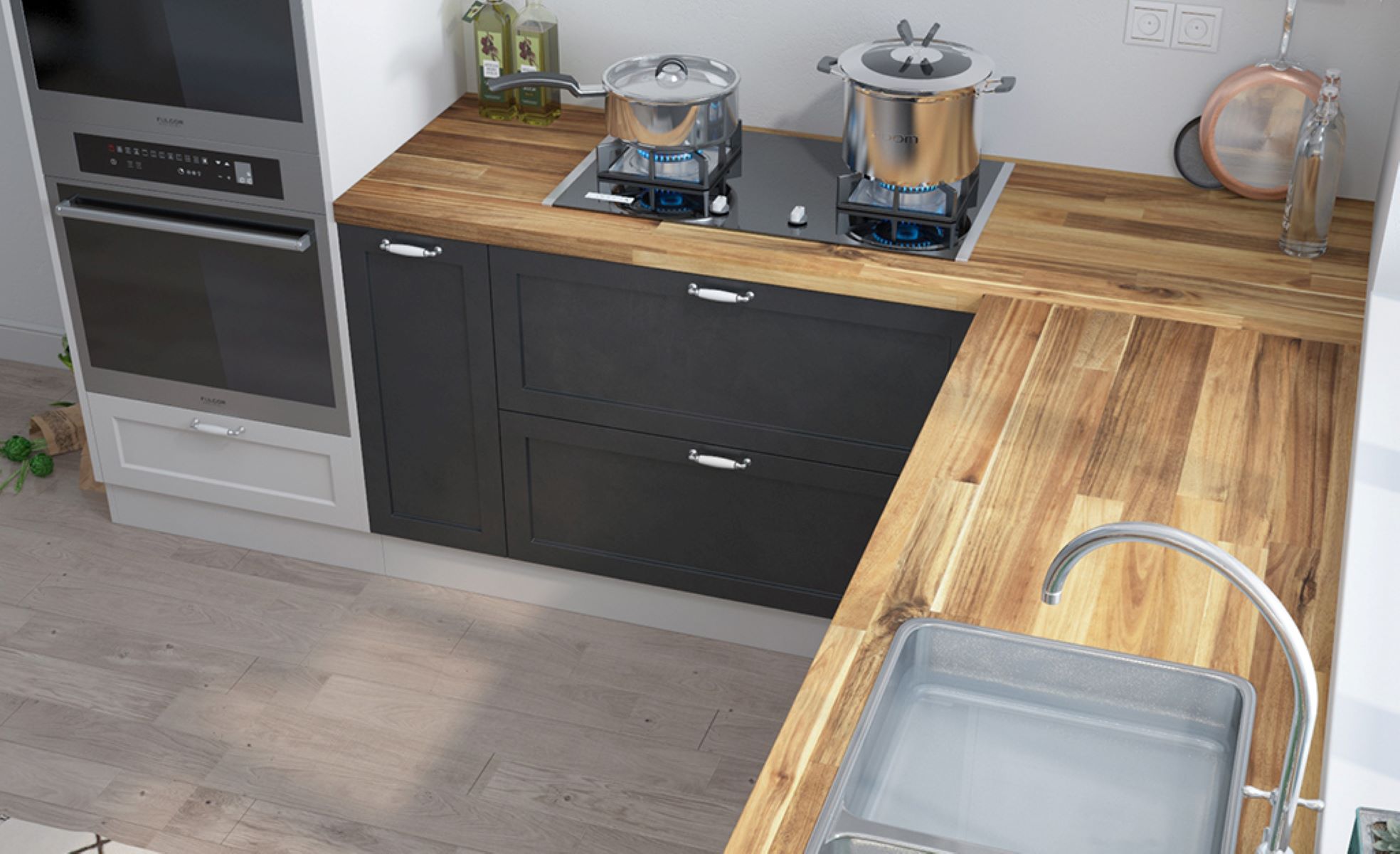
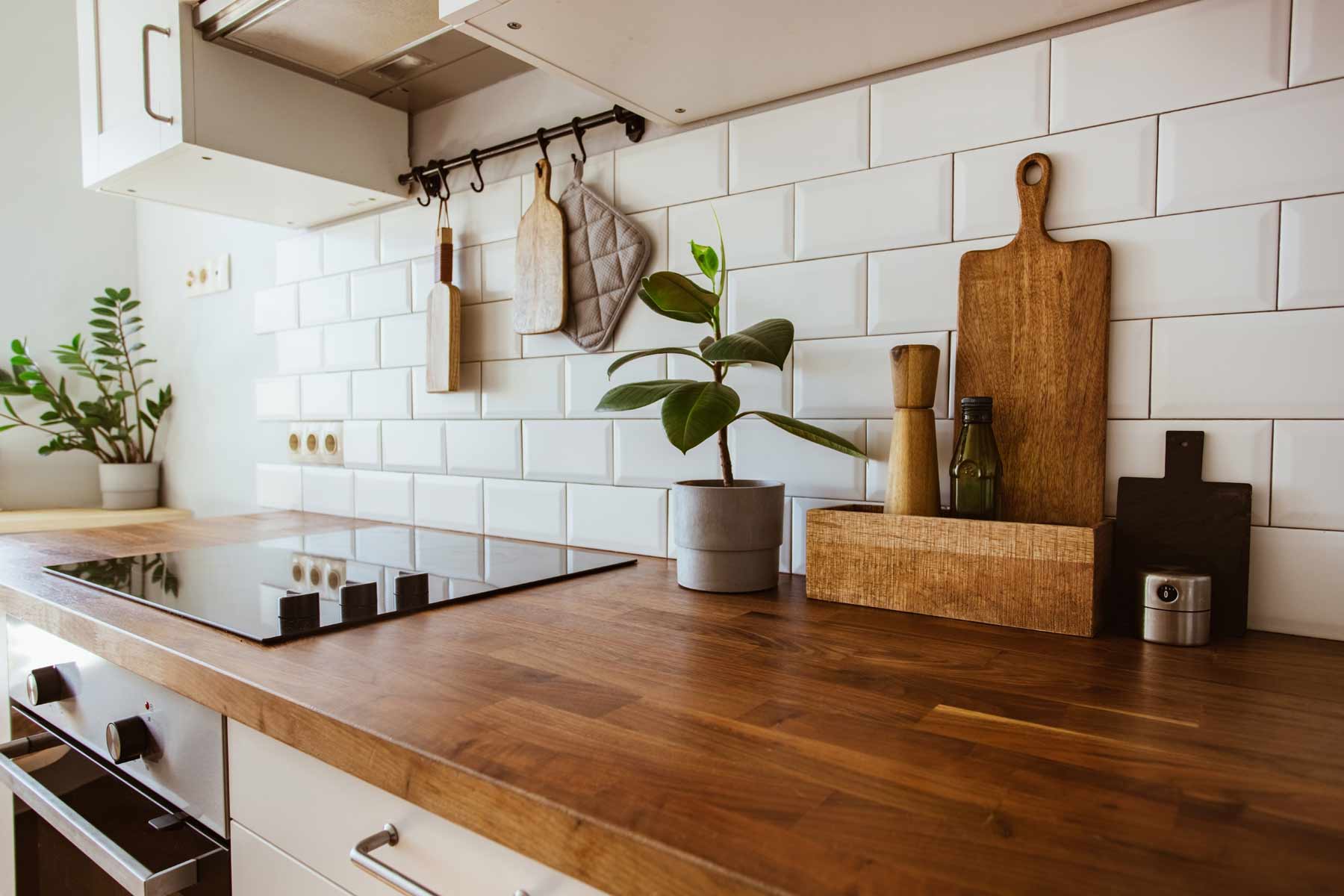
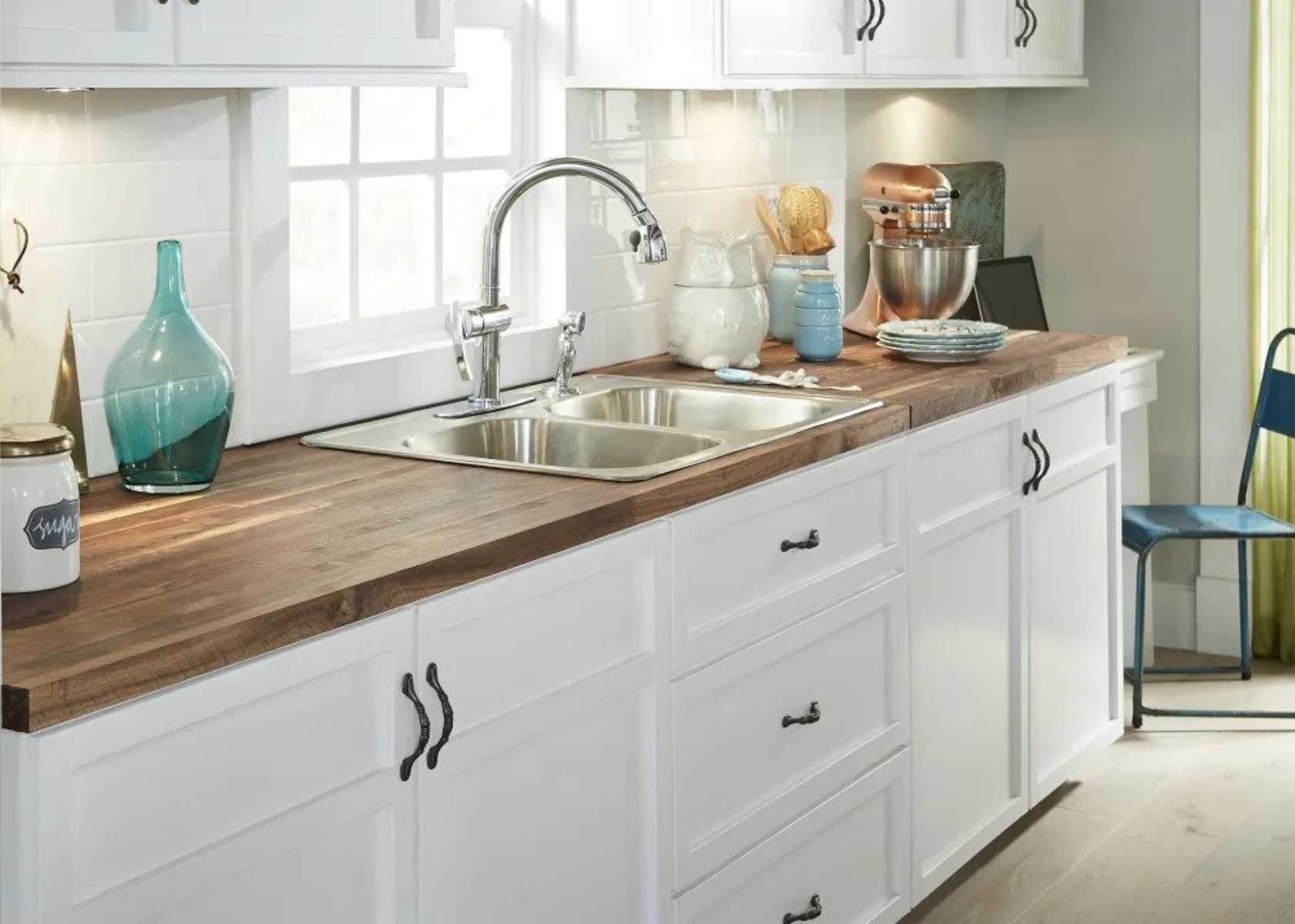
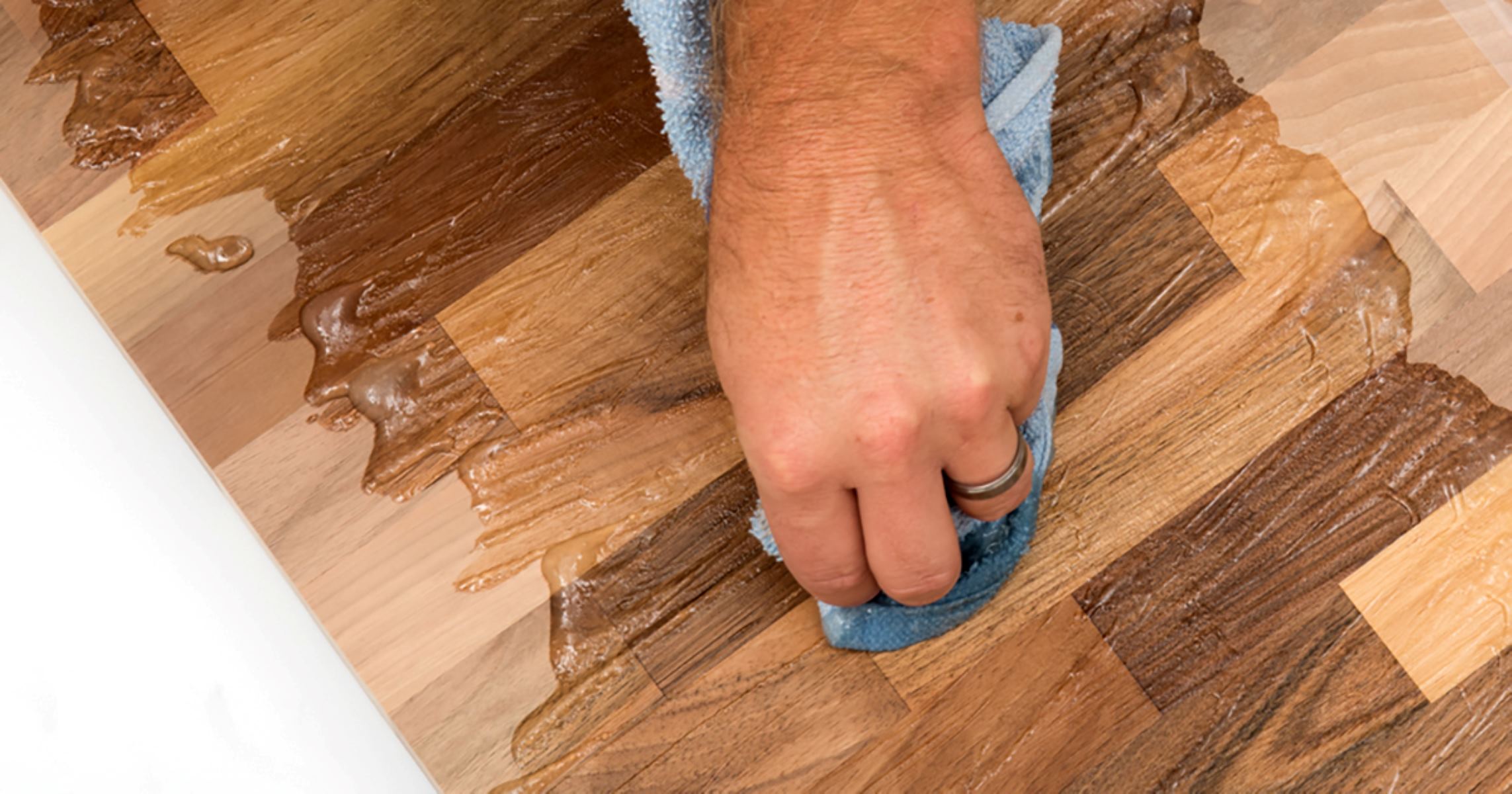
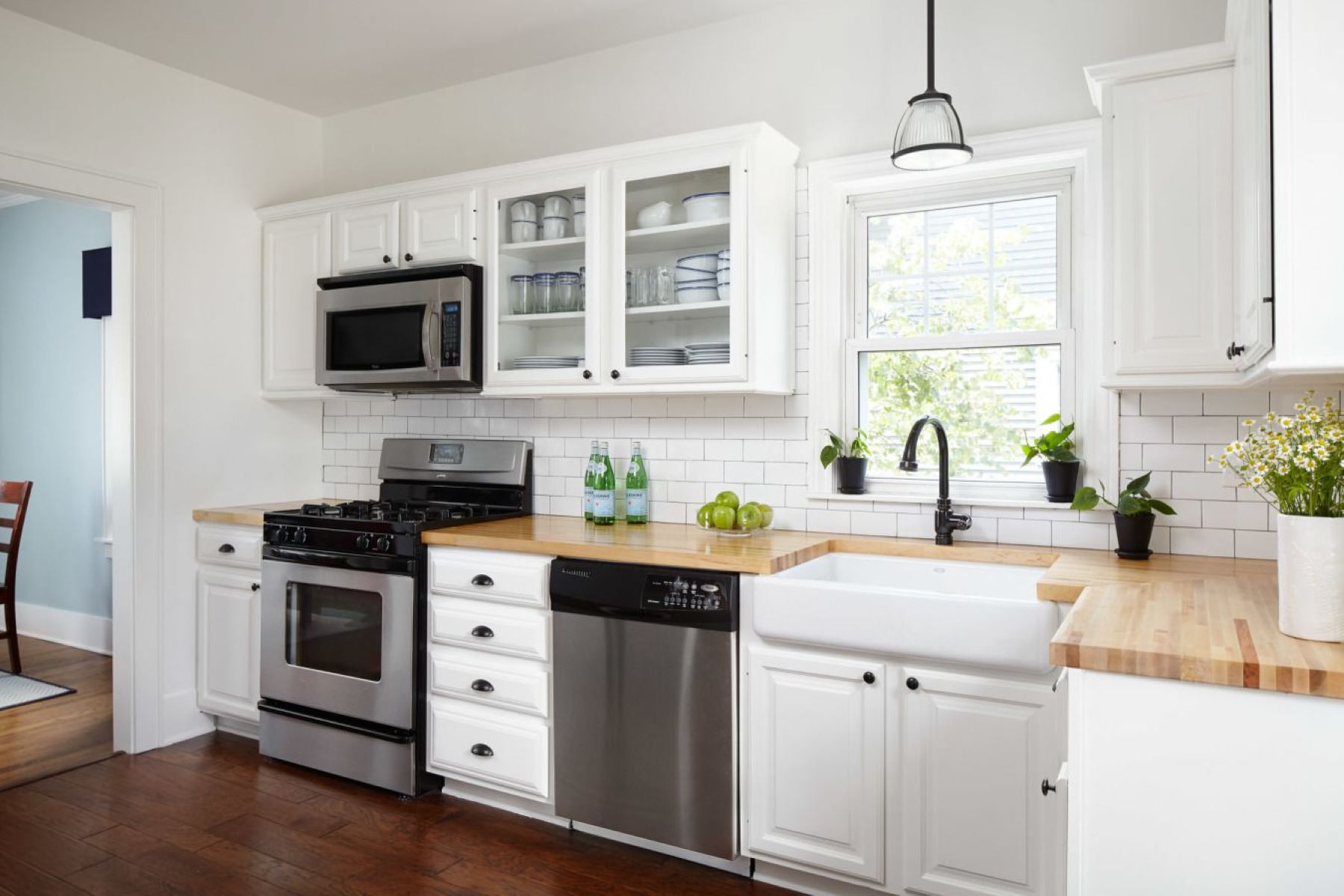
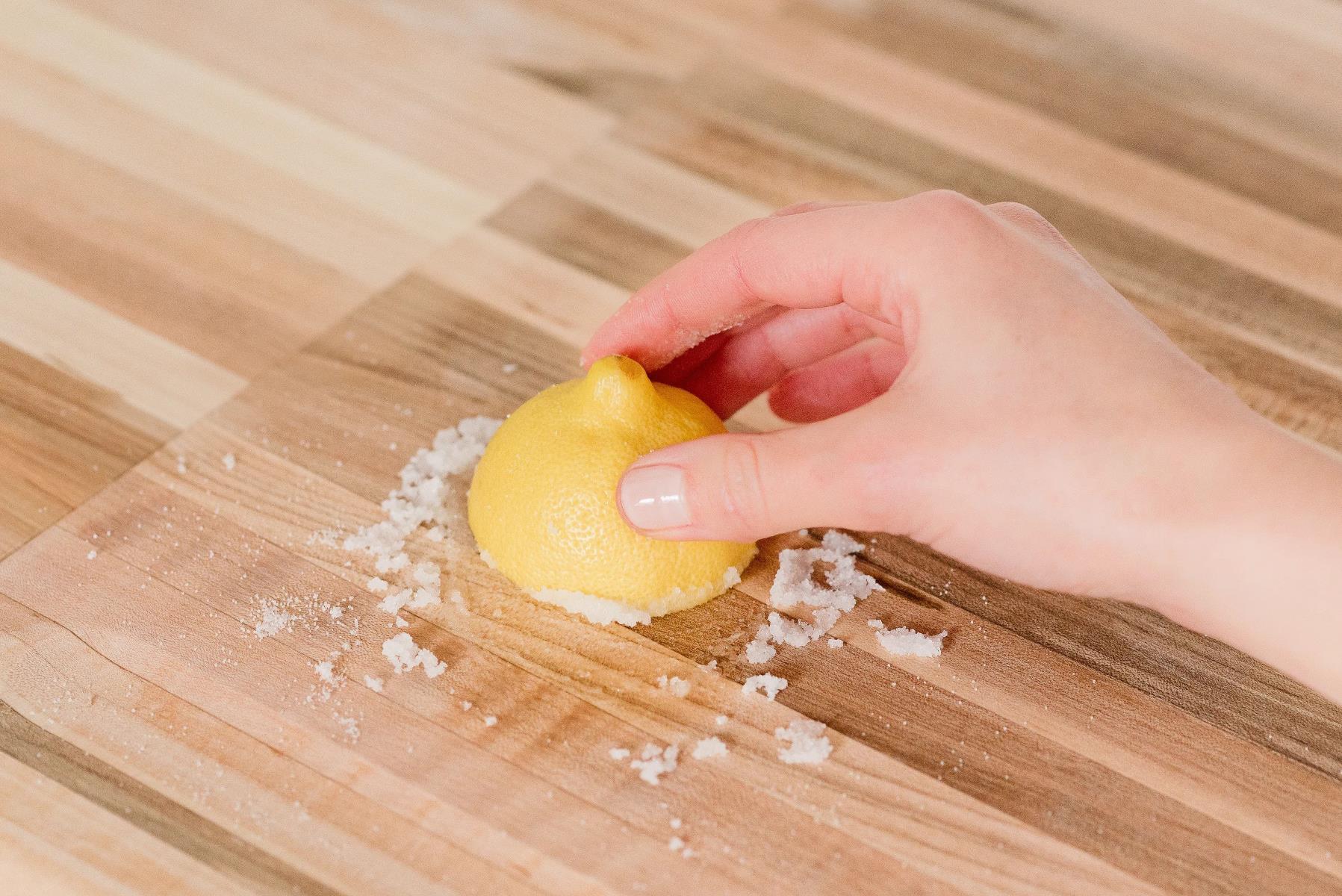

0 thoughts on “What Do You Finish Butcher Block Countertops With”